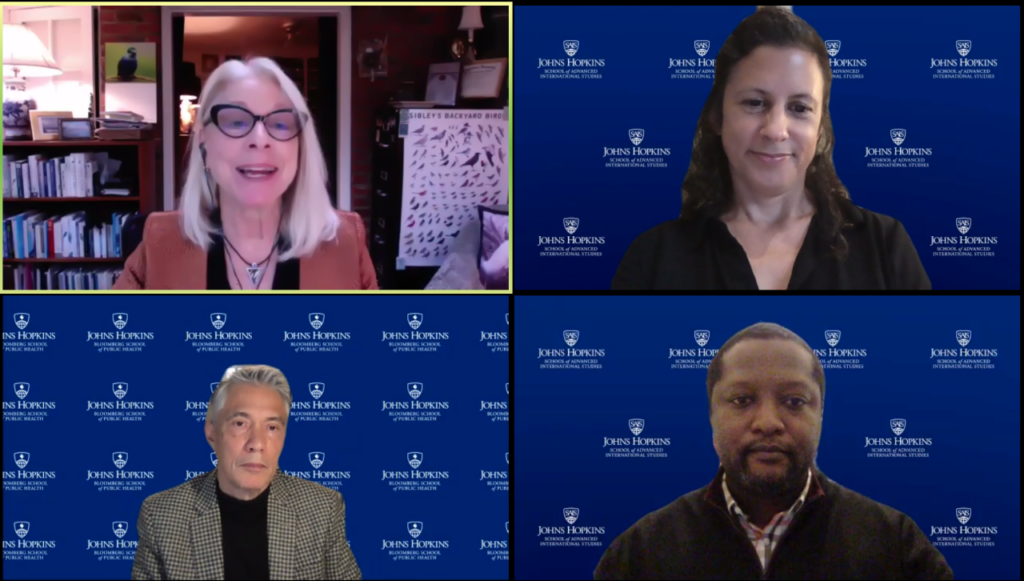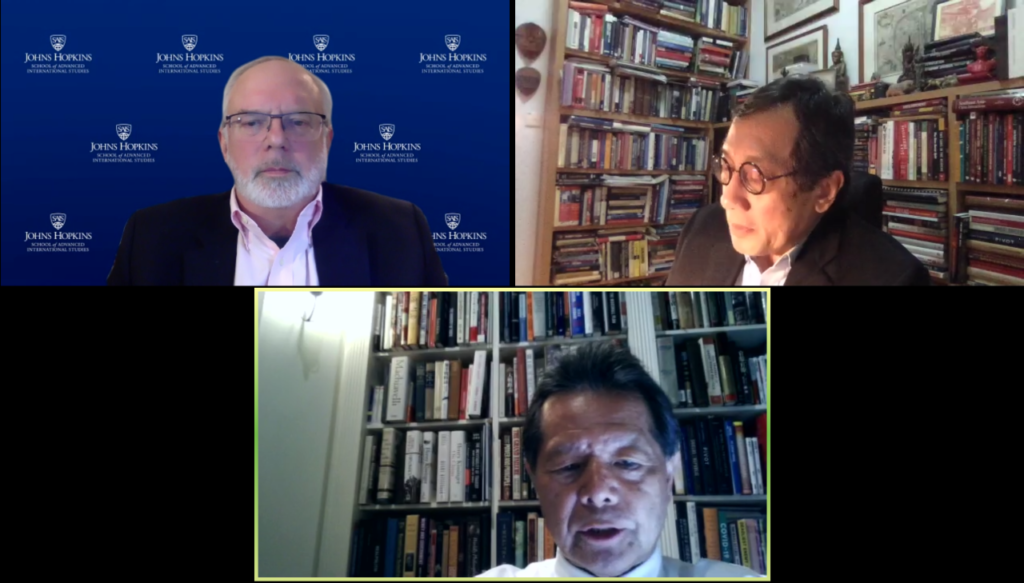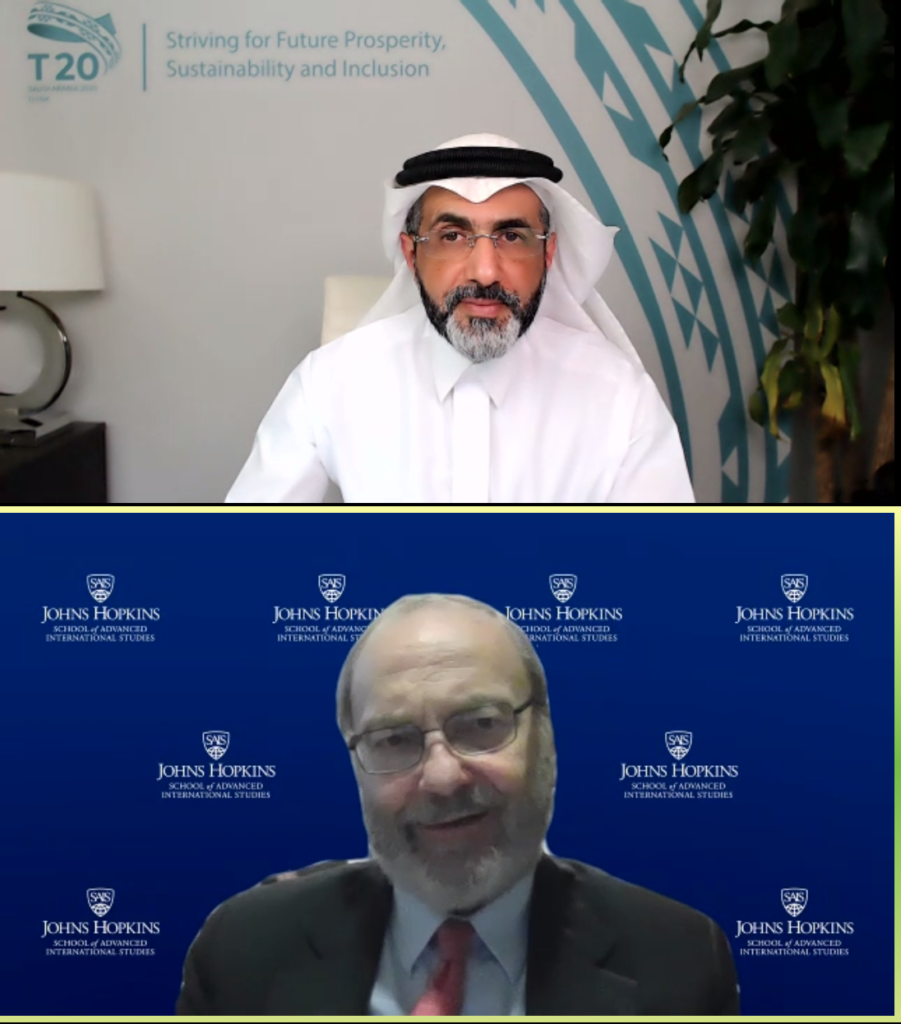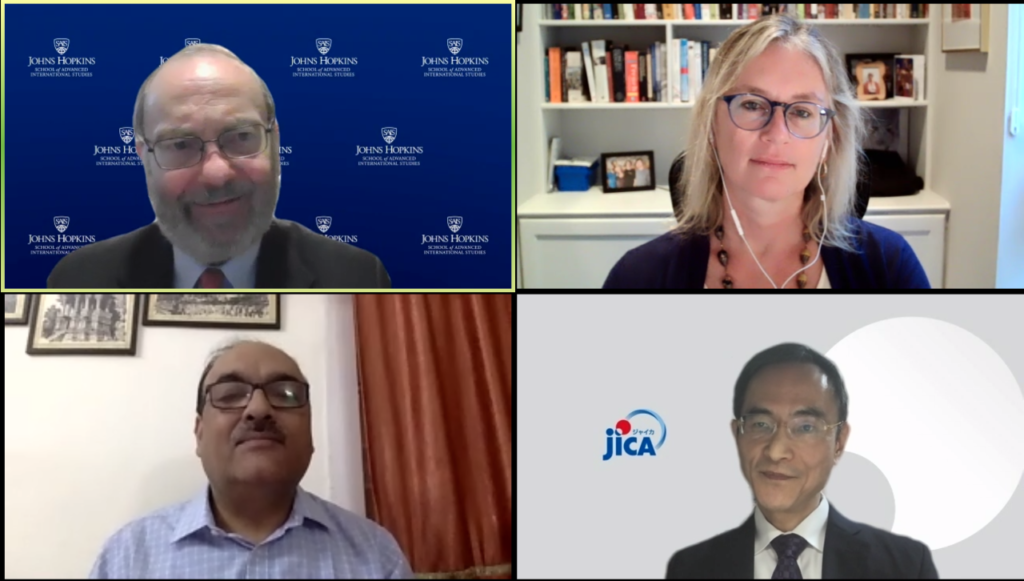COVID-19, East Asia, and the Global Response
COVID-19, East Asia, and the Global Response
On November 11th, the Reischauer Center convened a virtual conference on “COVID-19, East Asia, and the Global Response”, in cooperation with the T-20 Global Think Tank Summit. T-20 is the Track II arm of the G-20 Global Economic Summit, taking place this fall in Riyadh, Saudi Arabia. Speakers from six nations, including India, Saudi Arabia, Nigeria, Singapore, Japan, and the United States, presented remarks at this cosmopolitan event. The proceedings were broadcast on the Johns Hopkins University Coronavirus Resource Center website, known throughout the world as an authoritative source of COVID 19 statistics.
Mr. Alan Donnelly, Convenor of the G-20 Health and Development Partnership, delivered the keynote address, stressing the growing need to overhaul existing global health frameworks through regional cooperation and participation of finance officials and economists in global health organizations. Following his remarks, three panel discussions, moderated by Johns Hopkins SAIS faculty, covered various dimensions of the global response to COVID, including health system crisis resilience; environmental and food system implications; and East Asia’s emerging role in the post COVID world.


Professor Kent Calder, Director of the Reischauer Center, moderated the first panel, featuring Keiichiro Nakazawa, Senior Vice President of Japan’s International Cooperation Agency; Vikas Sheel, Joint Secretary of the Ministry of Health and Family Welfare in India; and Dr. Sara Bennett, Director of Health Systems at the Johns Hopkins Bloomberg School of Public Health. Key themes included the importance of relating financial outlays and services more closely to local need.
Ambassador Cinnamon Dornsife of SAIS moderated the second discussion, featuring two Johns Hopkins University health policy and nutrition specialists, Dr. Martin Bloem and Dr. Jessica Fanzo, as well as a health and development specialist from Duke University, Dr. Osondu Ogbuoji. All three panelists underscored the need for equitable responses to COVID-19 pandemic challenge, including the under-appreciated problem of needy citizens in middle-income societies, as well as the importance of far-sighted financial backing and multilateral cooperation in preparing for future pandemic contingencies.
Ambassador David Shear, Senior Fellow at the Reischauer Center, moderated the last panel with presentations from Bilahari Kausikan, long-time Permanent Secretary of the Singapore Ministry of Foreign Affairs, as well as Dr. Yoichi Funabashi, Chairman of the Asia-Pacific Initiative, from Japan. The rising role of ASEAN countries in trade, the standing of American foreign policy in response to domestic struggles to contain COVID-19, and Japan’s efforts to navigate shifting geopolitics were major themes at this third panel.
Dr. Fahad M. Alturki, Chair of the T-20 Global Think Tank Summit, provided thoughtful closing remarks. He highlighted the key themes of multilateral cooperation, prevention planning, and a people-centered approach to healthcare, in confronting the unique and unprecedented challenges of the COVID 19 pandemic. Professor Calder delivered final thanks to the speakers, panelists, and audience, gathered virtually from throughout the world.


Categories
© 2025 The Edwin O. Reischauer Center for East Asian Studies at the Johns Hopkins School of Advanced International Studies (SAIS), a division of the Johns Hopkins University. All Rights Reserved.
Sitemap | Custom WordPress Design, Development & Digital Marketing by time4design.


